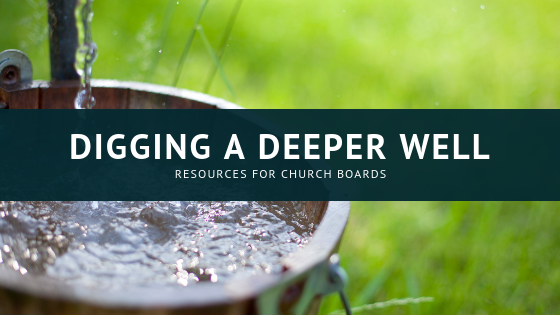Recent survey results from the Pew Forum on the decline of Christianity in America have brought forth responses from across the spectrum of faith communities. Reactions have ranged from panic and despair to renewed resolve about the power of the gospel. No matter where your church board finds itself on the landscape of American Christianity—a growing church, an aging church, a congregation in a season of decline or vitality—it would serve your board well to digest this report.
Where a church board goes from there is important.
A Yiddish poem by Hirsch Oscherovitch, “Der Ikker” (The Main Thing) offers playful but wise instruction:
If your outlook
on things has changed –
this is not the main thing.
If you feel like laughing
at old dreams –
this is not the main thing.
If you recall errors
of which you are ashamed –
this is not the main thing.
Even if you know
that, what you are doing now,
you’ll regret some other time –
this is not the main thing either.
But beware lightheartedly
to conclude from this
that there is no such thing
as a main thing –
this is the main thing.
Eugene Peterson’s The Message vocalizes a portion of the Sermon on the Mount (Matthew 6:30-34) that can help church boards in the hard work of keeping focused on the main thing:
If God gives such attention to the appearance of wildflowers—most of which are never even seen—don’t you think he’ll attend to you, take pride in you, do his best for you? What I’m trying to do here is to get you to relax, to not be so preoccupied with getting, so you can respond to God’s giving. People who don’t know God and the way he works fuss over these things, but you know both God and how he works. Steep your life in God-reality, God-initiative, God-provisions. Don’t worry about missing out. You’ll find all your everyday human concerns will be met.
34 “Give your entire attention to what God is doing right now, and don’t get worked up about what may or may not happen tomorrow. God will help you deal with whatever hard things come up when the time comes.
- What first thoughts and feelings does the Pew report provoke in you and your board members?
- Beyond those first thoughts and feelings, how does the report frame, or re-frame, what you are doing as a congregation in this place and time?
- What is the main thing you as a congregation need to focus on?
- What wisdom does Oscherovitch’s playful poem offer as you seek to find and focus on that main thing?
- What guidance can you find in Peterson’s version of the Sermon on the Mount? How in this time can you, as leaders of a congregation, respond to Jesus’ call “to relax, to not be so preoccupied with getting, so you can respond to God’s giving?”








No Comments